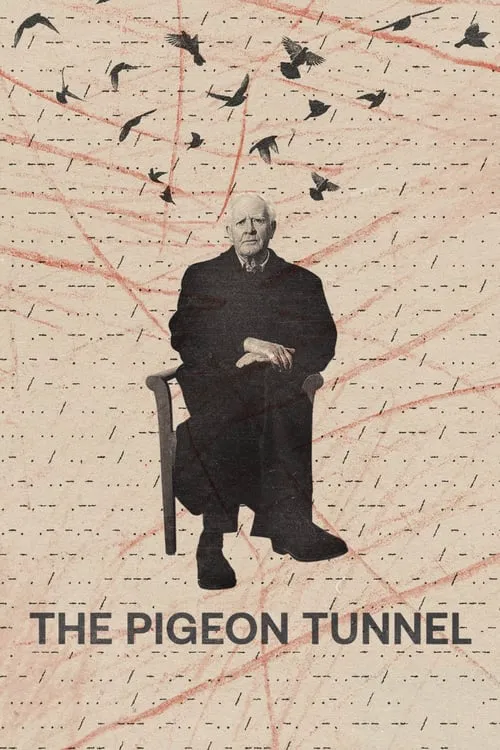The Pigeon Tunnel

Plot
The Pigeon Tunnel is a biographical documentary directed by acclaimed filmmaker Errol Morris, delving into the fascinating life of David Cornwell, a former spy and renowned author widely known by his pen name, John le Carré. As Morris skillfully excavates, le Carré's enigmatic persona not only reflects his intriguing experiences as a spy but also serves as the backdrop for an exploration of the complexities of identity, morality, and the blurred lines between fiction and reality. The documentary takes its title from one of le Carré's lesser-known novels, 'The Pigeon Tunnel: Stories from My Life,' which offers a tantalizing glimpse into the author's remarkable journey. The film is more than simply a biographical sketch; rather, it is an immersive and deeply introspective journey into the inner workings of le Carré's mind and the motivations that drove him to become one of the most celebrated authors of the 20th century. Born in 1931 in Poole, England, David Cornwell, or le Carré as he became known, came from a privileged background but was not one to shy away from the rough-and-tumble streets of boarding school and later, the harsh realities of war, particularly his service in the British Special Branch. These formative experiences played a pivotal role in shaping his worldview and informing his craft. Throughout the documentary, Morris expertly weaves together an intricate tapestry of recollections from le Carré's life, which includes his early days working for British Intelligence during the Cold War, where he was tasked with infiltrating and gathering information on Eastern European communist cells. This experience not only left an indelible mark on le Carré's psyche but also influenced the themes and characters that populate his novels. As le Carré recounts his life story, it becomes apparent that his experiences have a profound impact on his writing. He often blurred the lines between reality and fiction, drawing from his own life to craft the intricate, morally complex characters and plotlines that have come to define his work. Morris skillfully conveys this symbiotic relationship between le Carré's life and his writing, revealing how each new novel was a reflection of his own personal struggles and the anxieties of a world torn apart by the tensions of the Cold War. One of the documentary's most compelling aspects is its examination of the intricate, often fraught relationship between le Carré and the literary establishment. Morris sheds light on the complex dynamics at play within the world of espionage, where allegiances were frequently tested, and loyalty was measured by the very lives of those involved. Through extensive interviews with le Carré, coupled with meticulous archival research and rare behind-the-scenes footage, Morris creates a richly textured portrait of an extraordinary individual. Le Carré, with his wry wit and piercing intellect, navigates the complexities of his own legacy with a mix of introspection and candor. However, what truly sets The Pigeon Tunnel apart is the way it interrogates the notion of identity, particularly the mask that le Carré wore as a spy, as well as the masks that he, as an author, crafted for his characters. The film raises fundamental questions about the self and the ways in which our experiences shape us, leaving the viewer to ponder the relationship between fiction and reality. Ultimately, The Pigeon Tunnel is a profound and thought-provoking exploration of the interplay between identity, morality, and the art of writing. Through its masterful use of narrative and imagery, Errol Morris offers an unparalleled glimpse into the life and work of one of the most intriguing and celebrated figures of the 20th century, shedding new light on the enduring legacy of John le Carré and the profound impact his stories have had on the literary world.
Reviews
Recommendations




